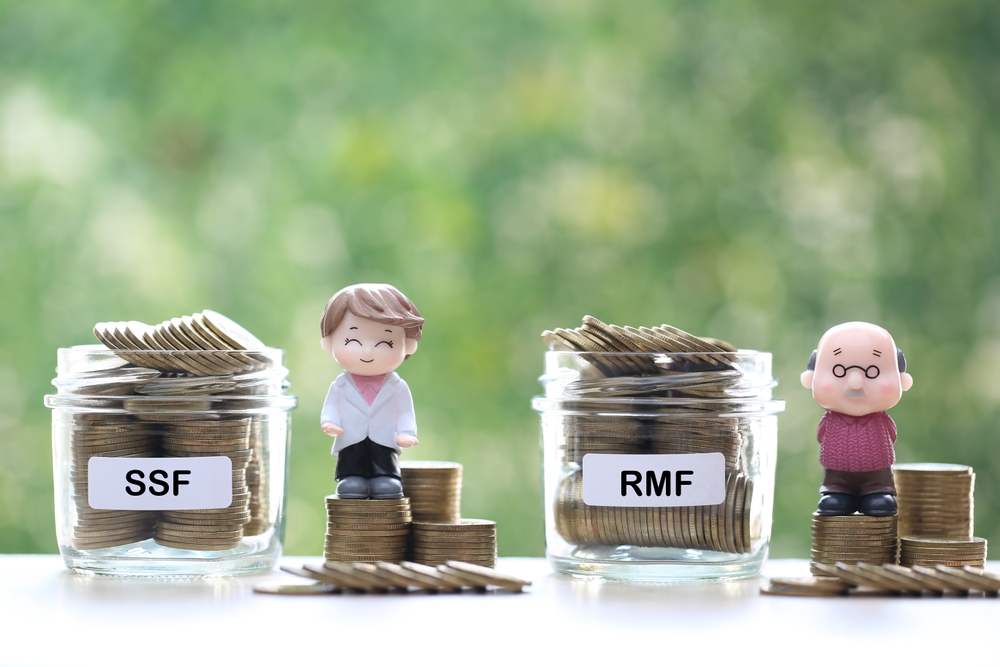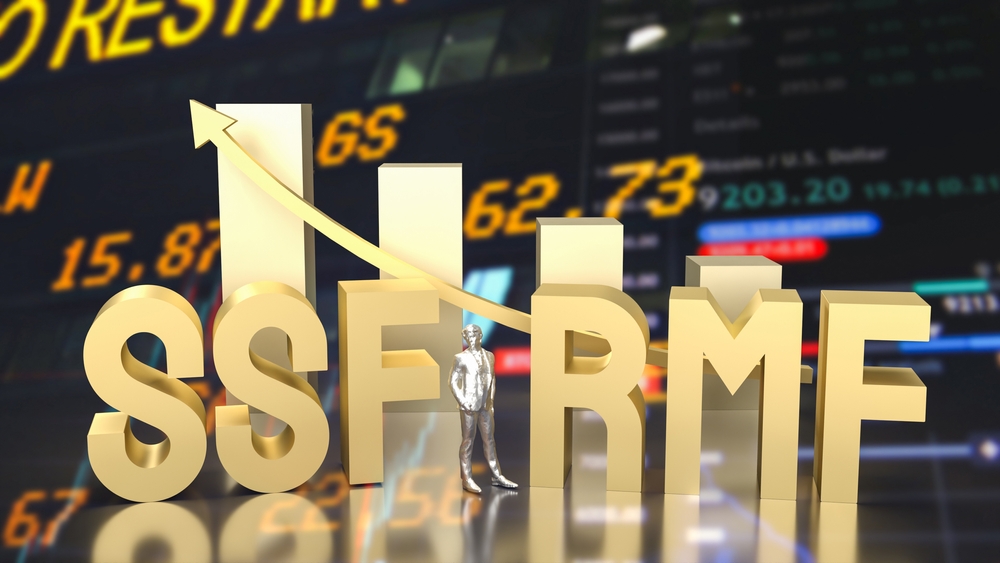Investment
EASY-D Debenture Account
Debenture deposit service via SCB EASY App no longer debentures in scrip
New Tax Criteria for 2024 Announced: Thai ESG, SSF, and RMF - Essential Updates for Beginners and Experts Save and Plan Taxes with SCBTM (Thai ESG), SCBLT1-SSF, and SCBRM4 Invest Easily with the SCB EASY App

As the year draws to a close, it’s an excellent opportunity for all income earners to reflect on financial planning, particularly with a focus on retirement goals. Building an investment portfolio that aligns with long-term objectives—from working age to retirement—is key. Regular, consistent planning every year can set the foundation for a secure future. This is also a prime time to explore ways to reduce your tax burden. One of the most popular and beneficial options is investing in Thai ESG, SSF, and RMF funds, which offer dual advantages: tax benefits and potential investment returns.
While short-term market conditions remain volatile—due to factors like the Federal Reserve's interest rate adjustments, the U.S. presidential election, sectoral investment shifts, and Thailand's ongoing economic recovery—historical data suggests that volatility tends to stabilize over the long term. Tax-saving funds, with their required holding periods, are inherently long-term investments. This approach not only mitigates risk but also enhances the likelihood of achieving desired returns.
If you're wondering about the differences between Thai ESG, SSF, and RMF funds, or trying to determine which fund suits your needs, this article provides all the insights you need.

Let’s start by briefly understanding the different types of tax-deductible funds and their purchase and holding conditions.
Thai ESG Funds
Thai ESG Funds support long-term savings, offering a way to reduce personal income tax while promoting sustainable business practices among listed companies. These funds invest in Thai stocks and debt instruments that align with ESG principles—focusing on Environment, Society, and Governance—to ensure sustainable growth over the long term.
Key Updates for 2024: On July 30, 2024, the Cabinet approved significant updates to the Thai ESG Fund criteria:
-Higher Tax Deduction Limit: Maximum tax-deductible investment increased to 300,000 baht (up from 100,000 baht), or 30% of assessable income, whichever is lower.
-Shortened Holding Period: Holding period reduced to 5 years from the investment date (previously 8 years).
Important Notes:
Retirement Funds (RMF)
Retirement Mutual Funds (RMF) offers tax benefits with a maximum tax-deductible investment limit of 30% of assessable income, capped at 500,000 baht. This is a self-regulated fund, requiring a minimum holding period of 5 years from the date of investment. Additionally, the funds must be held until the investor reaches 55 years of age, making it a suitable option for retirement planning. The RMF provides access to a wide range of assets, including bonds and debt instruments, Thai and foreign stocks, real estate and infrastructure, and gold. Investors can also switch between RMF funds to optimize their portfolio. For example, they can switch from a US stock RMF fund (S&P 500) to a Thai stock RMF fund (SET50) while maintaining the necessary holding period to maximize benefits.
When calculating the 500,000-baht annual tax deduction limit, RMF investments are counted together with other retirement-related investments, including Provident Funds, Super Savings Funds (SSF), Government Pension Funds (GPF), Private School Teachers' Welfare Funds, National Savings Funds, and Pension Life Insurance.
Super Savings Funds (SSF Funds)
Super Savings Funds (SSF) offer tax benefits with a maximum tax-deductible investment limit of 30% of assessable income, capped at 200,000 baht.
SSF funds allow investors to choose from a wide range of asset classes, including bonds and debt instruments, Thai and foreign stocks, real estate and infrastructure, and gold. To qualify for tax benefits, investments in SSF funds must be held for a minimum of 10 years from the date of investment.
The 200,000-baht limit for SSF funds is part of the overall 500,000-baht annual cap when combined with other retirement-related investments, such as Provident Funds, Retirement Mutual Funds (RMF), Government Pension Funds (GPF), Private School Teachers' Welfare Funds, National Savings Funds, and Pension Life Insurance.
Table Comparing the Conditions of 3 Tax-Deductible Funds
| Thai ESG | SSF | RMF | |
|---|---|---|---|
| Investment Policy | Focuses on investments in Thai assets, such as ESG-focused stocks or debt instruments. | Offers a diverse range of assets, including bonds, debt instruments, Thai and foreign stocks, real estate, infrastructure, and gold. | Provides a broad range of assets, including bonds, debt instruments, Thai and foreign stocks, real estate, infrastructure, and gold. |
| Investment Deduction Limit | Up to 30% of assessable income, capped at 300,000 baht. Deduction does not count toward the retirement group tax deduction limit.* Applies only to investment units purchased between January 1, 2024, and December 31, 2026. | Up to 30% of assessable income, capped at 200,000 baht.* Deduction is included in the overall retirement group tax deduction limit.* | Up to 30% of assessable income, capped at 500,000 baht. Deduction is included in the overall retirement group tax deduction limit.* |
| Minimum Investment Amount | No minimum investment required and no requirement for continuous investment. | No minimum investment required and no requirement for continuous investment. | No minimum investment required and continuous investment required every year (with allowance to skip for no more than 1 consecutive year). |
| Holding Period | 5 years or more from the investment date Applies only to units purchased between January 1, 2024, and December 31, 2026. | 10 years or more from the investment date | 5 years or morefrom the investment date and must be held until reaching 55 years of age |
| Tax Deductions Require Same-Year Fund Purchase | To claim tax deductions for a specific year, you must purchase the fund within that calendar year. For example, if you wish to claim a tax deduction for income earned in 2024, the fund must be purchased by December 31, 2024. Once purchased, the holding period begins, and the fund cannot be sold before the required holding period ends. Selling before the specified date violates tax deduction conditions, potentially requiring repayment of previously deducted taxes and, in some cases, additional penalties or interest (except in cases of disability or death of the fund holder). | ||
| Profits Upon Fund Redemption | When the holding period is complete, any profit from selling your investment units is tax-exempt and does not need to be included in your personal income tax calculation. | ||
The tax deduction limit for the retirement group—including SSF, RMF, PVD, GPF, pension life insurance, Teachers' Welfare Fund, and National Savings Fund—is capped at 500,000 baht in total.
With the recent adjustment, the overall tax deduction limit for investments has increased to a maximum of 800,000 baht when combining the maximum limits for Thai ESG, SSF, and RMF funds.

Thai ESG Funds Focused on ESG-Compliant Stocks
Recommended Fund: SCB Thai Sustainable Mixed Fund (SCBTM ThaiESG)
Mixed Fund Focused on Thai Dividend Stocks
Recommended Fund: SCB Dividend Stock 70/30 Long Term Equity Super Savings Fund (SCBLT1-SSF)
Quality Thai Stocks
Recommended Fund: SCB Equity RMF (SCBRM4)
When Is the Best Time to Invest in Tax-Saving Funds: Thai ESG | SSF | RMF? The answer is simple: Start investing now. By starting early, you ensure that you don’t miss out on both investment opportunities and tax deduction benefits, regardless of market conditions.

Are you ready to invest in SCBTM (ThaiESG), SCBLT1-SSF, or SCBRM4?
Here’s how you can get started today:
Learn more:
Special Offer! Receive up to 1,600 baht worth of SCBSFF investment units when you accumulate investments in participating RMF, SSF, or Thai ESG funds between September 2, 2024, and December 30, 2024 via the SCB EASY App.
For more information, click!https://www.scb.co.th/th/personal-banking/investment/fund/mutual-funds/tax-2024.html
Notes:
#ออมและวางแผนภาษี #SCBTM(ThaiESG) #SCBLT1-SSF #SCBRM4 #SCBX #SCBWealth #SCBEASY #นิ้วโป้ง